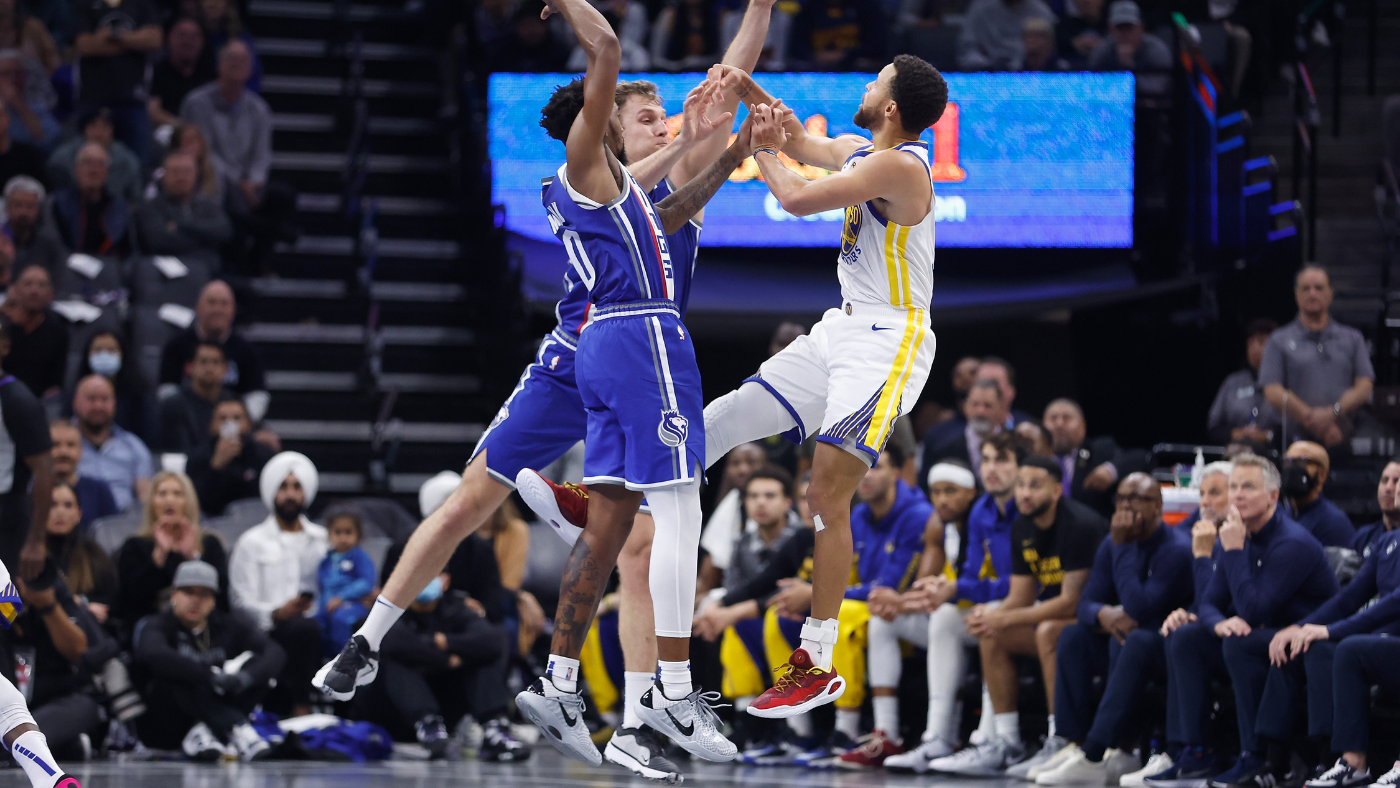The Israel-Hamas war has college campuses on edge. How some are tackling the issue.
Written by ABC Audio ALL RIGHTS RESERVED on November 29, 2023
(NEW YORK) — Colleges and universities across the United States are struggling to handle the ongoing debate over the Israel-Hamas war with pro-Palestinian and pro-Israeli protests erupting on campuses and federal agencies launching investigations into possible discrimination at several institutions.
In recent years, schools, which are often seen as hotbeds for political discussions, have increasingly been criticized for lacking open dialogue about social issues on campus.
The Israel-Hamas war — with its long, complex history and sensitive connections to identity and religion — has raised these longstanding tensions to new heights.
At the same time students have been looking for a path forward — trying to foster dialogue and dial back the tensions.
Here is what to know:
Tension on campus
Reports of physical altercations, growing instances of antisemitism and Islamophobia, and the deactivation of student-activist groups have plagued schools and put students on edge in recent weeks, according to officials.
The U.S. Department of Education has launched several investigations into U.S. colleges and schools where students have reported antisemitism or Islamophobia — five antisemitism cases and two Islamophobia cases at seven different schools.
At Harvard, several student groups issued a statement on the conflict, saying Israeli policies are “entirely responsible for all unfolding violence” following the Oct. 7 terrorist attack by Hamas, which killed over 1,200, referencing the longstanding humanitarian crisis in Gaza.
The letter prompted a fierce backlash, including some Jewish students at the university saying they felt isolated and scared following the letter’s publication, claiming it supported the Hamas attack.
The students behind the letter denied supporting Hamas and say the backlash has led to a doxxing campaign against students believed to be connected to the letter. Some say they’ve been “flooded with racist hate speech and death threats.”
In response, Harvard established a task force to support students experiencing doxxing, harassment and online security issues, according to the Harvard Crimson.
Harvard President Claudine Gay released a statement following the controversy, stating that student groups do not speak for Harvard University or its leadership: “We will all be well served in such a difficult moment by rhetoric that aims to illuminate and not inflame.”
Columbia University has experienced several incidents related to the Israel-Gaza conflict.
The New York City Police Department said an Israeli student was assaulted with a stick while putting up a poster of an Israeli hostage held by Hamas.
Meanwhile, a Columbia administrator said in an interview with a reporter from WKCR, the campus radio station, that he hoped “every one of these people die” as he monitored an Oct. 12 pro-Palestinian protest on campus.
The University declined to comment on the specific case, but said it is “committed to enforcing the rules and policies that are in place to ensure safety, civility and respect, a responsibility that we take extremely seriously.”
Two groups on campus — Students for Justice in Palestine and Jewish Voice for Peace — were suspended by the university for allegedly violating university policies for holding unauthorized events that “included threatening rhetoric and intimidation.” The restrictions prompted outcry nationwide.
Pro-Palestinian groups at other universities have also faced restrictions.
In Florida, the chancellor of the State University System of Florida demanded that state universities deactivate Students for Justice in Palestine groups on campuses for claiming the clubs provide “material support” to the terrorist group Hamas. The student group have denied the allegation.
However, Chancellor Ray Rodrigues later walked back the claim, saying at an October board of governors meeting that the demand raises “concerns about potential personal liability for university actors who deactivate the student registered organization.”
Students have sued state officials, saying their deactivation is censorship and a violation of their First Amendment right.
“As students on a public college campus, we have every right to engage in human rights advocacy and promote public awareness and activism for a just and reasonable solution to the Palestine-Israel conflict,” said the University of Florida’s Students for Justice in Palestine in a press release from the ACLU.
Gov. Ron DeSantis’ office told ABC News it still backs the call to deactivate such groups, claiming that they are part of a “foreign terrorist movement.”
Making space for tough conversations
As emotions continue to run high, some students, faculty and others are working to offer spaces for open dialogue amid the tensions.
“I think people are realizing that there’s been a pretty dysfunctional atmosphere for free speech and discussion across lines of differences,” Greg Lukianoff, president and CEO of the Foundation for Individual Rights and Expression (FIRE), told ABC News.
When Harvard became an example of the challenges facing higher education, Shira Hoffer, a Jewish student at the school, offered her skills as a court mediator to facilitate dialogue and research for fellow students who had questions about the ongoing war or the Israeli-Palestinian conflict.
She turned the offer into a hotline run by a multiethnic, multi-religious group of volunteers from around the world. Volunteers have a broad collective of resources in a living document to pull from, including information from various media, scholarly articles and nonprofit organizations.
“There’s no such thing as an unbiased source,” said Hoffer. “Instead, we’re providing a collection of sources, from different perspectives, where if you read all of them, you’ll get a fuller picture of what’s going on.”
The process is simple: when someone texts the hotline, all volunteers receive the question and can jump in to answer questions in a private chat which can later be reassigned to another volunteer who can offer more or a different perspective.
Some of the volunteers say the hotline has been a personal journey in engaging in the various debates around a complex conflict.
“If you are very enthusiastic and passionate about your own beliefs, you sometimes wonder why other people are not passionate about it or other people have different opinions,” said Mehrdad Sadeghi, a volunteer.
He said when he gets in this line of questioning, he asks himself, “Have I ever engaged in a conversation with them? Do I know where they come from?”
Naomi Anbar, another volunteer, said that she was raised to believe “if two people just sat down and had a conversation with each other, you can actually find common ground somewhere in there, and even if you don’t — even if you can’t, it is so important to both sides for that experience.”
Lukianoff said that forums like formal classroom debates and moderated panel discussions are vital to promoting healthy discussions.
“If we all technically have a free First Amendment right, but we’re all too frightened or too angry to actually talk to each other about what our opinions are, then it doesn’t matter all that much,” said Lukianoff.
He continued, “Once you’re forced to take the other side of an issue that you strongly believe in, you find it a lot harder to think that anyone who disagrees with me is either stupid or evil, which, unfortunately, is a very natural human instinct.”
FIRE, which advocates against infringements of free speech, has found that people on all sides of this debate have been targeted in recent years — from Israeli speakers to pro-Palestinian protesters.
“Especially on things that are of life and death importance, you need to be able to have people who can sit down and talk about these hard things,” Lukianoff said.
Lukianoff applauded the faculty at Dartmouth University for its efforts in creating a space for students and faculty to talk about the conflict.
The school’s Jewish Studies and Middle Eastern Studies program held two joint public events to discuss war and hear from scholars who have long studied and taught courses on the region. They welcomed questions and insight from the crowd, according to the university.
The in-person attendance for the first forum was sold out, with an overflow crowd watching in a separate room and more than 1,000 people also watching online, according to the university.
“Working together, we have deepened each other’s scholarship and teaching,” said Susannah Heschel, chair of Jewish Studies, in a statement on the Dartmouth website.
Teaching difficult subjects
Lizzy Carroll, a program director at the educational nonprofit Facing History and Ourselves, is no stranger to sensitive topics on campus. The organization was founded in the 1970s based on a lack of Holocaust curriculum at the time.
Currently, they help educators — predominantly in middle and high schools — to teach sensitive topics, such as the Armenian genocide, the Civil Rights Movement, and now the Israel-Hamas conflict.
They hope their lessons can be applied to college campuses and adults who disagree.
Facing History and Ourselves encourages educators to focus on three points: “our head, our heart and our conscience,” Carroll said.
Carroll explained that this means to lead conversations from the “heart,” with emotional engagement about how people are feeling; educators should tackle the subject from the “head,” laying out what the group already knows about what has happened and discussing the facts; and teachers should engage the “conscience,” which is the “ethical reflection” about the moral complexities of the topic and questions that everyone is grappling with in understanding it.
Social media has made it increasingly hard for educators to tackle widening division and growing instances of hate in schools, “which are driven by a lack of understanding and awareness,” Carroll told ABC News.
Studies have shown that social media has increased polarization across the political spectrum, amplifying divisive content and normalizing hateful language.
Young students are spending a lot of time online where they can be exposed to misinformation as well as antisemitic or Islamophobic tropes.
Carroll’s organization fights this by providing educators with resources to give students the social tools to identify and dismantle those tropes and misconceptions in real time.
Facing History hopes that students who have the foundation for these communication skills can grow up to participate constructively in civic dialogue as adults.
It’s something FIRE encourages not just in K-12 education, but also to be strengthened in higher education.
“America actually has pretty poor communication across lines of economic class, across the lines of race, across lines of even regions,” said Lukianoff. “These kinds of projects to actually start having some empathy for the people you disagree with is something that can’t be planted early enough.”
Copyright © 2023, ABC Audio. All rights reserved.







